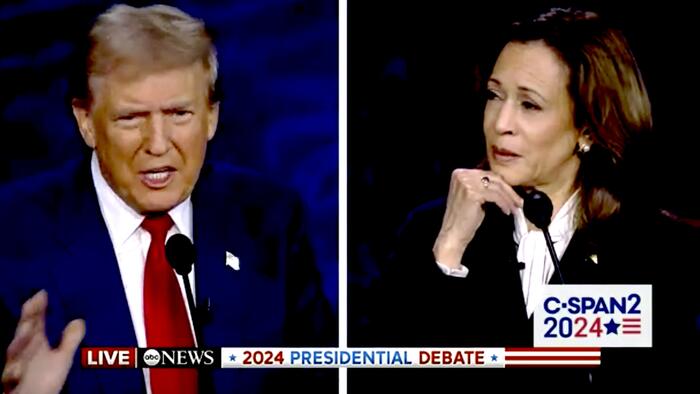The political climate in the U.S. as the November elections approach is fraught with tension, marked by accusations of foreign interference supposedly threatening the sanctity of American democracy. In a recent article by Patrick Lawrence, he highlights how mainstream narratives—particularly from outlets like The New York Times—frame the electoral landscape as being under siege from “mal-intended foreigners,” specifically pointing the finger at Russia, China, and Iran, who are portrayed as disruptors sowing discord. These themes echo previous cycles of political tension, underscoring a pervasive narrative about external threats undermining American democratic processes. Yet, as skepticism brews about the integrity of elections within the country itself, real instances of attempted vote-rigging underline a landscape rife with internal challenges. Notably, such circumstances indicate that both parties seem desperate not only to win but to circumvent any possible loss, suggesting that the principles of democracy are becoming increasingly secondary to political success.
Lawrence critiques the notion that the mainstream political discourse can credibly fortify American democracy, a sentiment he believes has eroded over recent years, particularly following Hillary Clinton’s defeat in the 2016 elections. He posits that the inability of the Democratic Party to accept electoral upset has contributed to a broader narrative of political chaos and disillusionment. This disillusion is exacerbated by the perception that American liberalism, often heralded as progressive, possesses an undercurrent of illiberalism that dictates a rigid conformity rather than encouraging diverse thought. Such an atmosphere, reminiscent of what Alexis de Tocqueville termed “soft despotism,” raises concerns about the future of political discourse and plurality in the U.S. Furthermore, Lawrence frames this political climate not only as an ideological battle but as an almost existential crisis, one that threatens the foundational democratic values he believes are paramount.
Institutional corruption, particularly within the judiciary, intelligence community, and mainstream media, constitutes a central theme in Lawrence’s critique. He posits that the corruption of these institutions is entwined with the Democratic Party’s efforts to maintain power, muddying the waters of objective governance. The perversion of the judicial system is particularly concerning, illustrated by the suspension of impartiality—exemplified by the Mueller investigation and various prosecutions against political figures—all while overshadowing pressing issues that warrant public scrutiny. Additionally, Lawrence points to the intelligence community’s allegiance to partisan interests and the military’s overt politicization as signs that the foundational checks and balances within the U.S. governance system are faltering. This reliance on institutional power exacerbates the erosion of public trust in democracy, challenging the legitimacy of both electoral processes and the institutions purportedly safeguarding them.
Lawrence goes further to connect these issues to the broader question of the “Deep State” and its implications for American democracy. He argues that the operational transparency of these institutions—like the intelligence community and military—has diminished to the point where they may openly manipulate political outcomes without regard for electoral integrity. He draws parallels to historical instances of foreign influence in other democracies to caution against accepting that domestic political operatives might not resort to similar tactics. Through the lens of established norms in American democracy, he raises the troubling prospect of whether the critical watchdog roles of these institutions are being subverted in favor of political expediency. By allowing institutional interests to dictate political outcomes, the underlying notion of democracy itself is at risk of being compromised beyond repair.
As the elections approach, anxiety within the electorate is palpable, with fears of post-election violence echoing through polls indicating that large factions of voters do not expect their opponents to accept defeat gracefully. Political polarization is rife, with common fears of violence among both Democratic and Republican voters should their favored candidates lose. Lawrence notes that this sense of instability threatens to manifest into real unrest, hinted at by surveys that reveal a deep-seated distrust in the electoral process across party lines. He highlights sociocultural dynamics at play, whereby media narratives, such as those propagated by The New York Times, further entrench divisions—using charged language to frame political adversaries in stark terms reminiscent of Fascism—creating an environment where mutual understanding seems increasingly unattainable.
In the aftermath of the 2020 election, doubts about electoral integrity persist, complicating the current electoral climate with residual skepticism. Lawrence emphasizes that narratives surrounding elections have fundamentally changed; the once straightforward trust in the electoral process has been sullied by allegations of interference and fraud, fueling a narrative where electoral outcomes are continuously called into question. The author’s mention of incidents of voter registration fraud in Pennsylvania—along with subsequent dismissals from election officials—serves to illustrate the contradictions plaguing current electoral oversight and behavior. He frames these disillusioning developments as symptomatic of a larger crisis of trust, positing that a lack of transparency and accountability regarding electoral processes uniquely hinders the U.S.’s ability to present itself as a model of democracy.
Ultimately, Lawrence’s exploration arrives at a disheartening conclusion: the crises within American democracy reveal a national character wrestling with its foundational principles. As both main political parties double down on strategies that prioritize winning at any cost, the means of safeguarding democracy take a backseat. Lawrence advocates for a critical understanding of political realities, challenging readers to assess not only the current electoral environment but also the broader implications of entrenched partisanship. He calls for a reckoning with the truth about the state of democracy in America—insisting that genuine resolution may only come when there is a sincere effort to confront and address the patterns of behavior that have ultimately brought the nation to this precarious juncture. The electoral outcome may very well hinge on this reckoning and the willingness of Americans to collectively reassess the democratic ideals they claim to uphold in an increasingly chaotic and divided polity.

